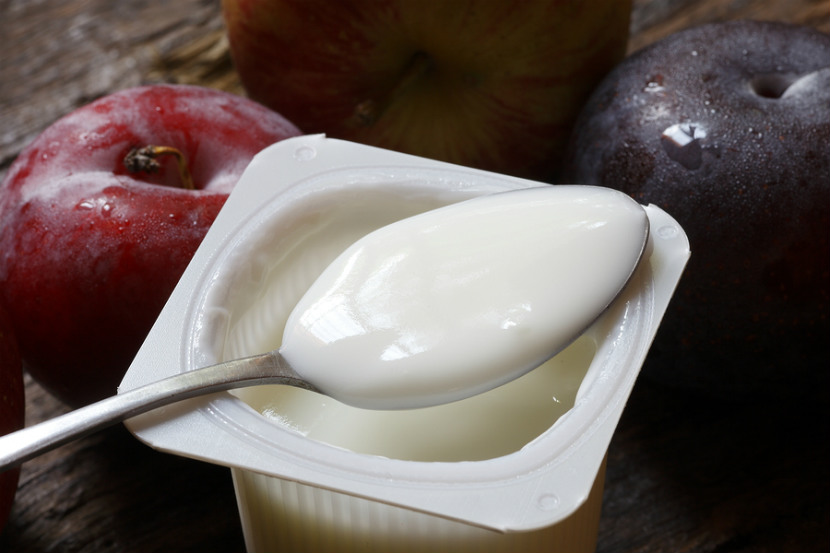
While shopping at the grocery store, you may have seen foods like milk, cheese and yogurt with added probiotics. Many health benefits about probiotics have been advertised, but it is often hard to know what is true. Read on to learn more about probiotics and to get reliable information on the health benefits they have to offer.
What are probiotics?
Probiotics are healthy or good bacteria that when eaten in the right amount have health benefits. Once in the colon, the bacteria multiply and help to keep a balance between the good and bad bacteria that live there. Probiotics are added to certain foods.
What’s the difference between prebiotics and probiotics?
Prebiotics are non-digestible carbohydrates that act as “food” for probiotics. Eating prebiotics will help the probiotics multiply and remain in your digestive system. Examples of foods with prebiotics are artichokes, bananas and onions.
What are the health benefits of probiotics?
Research shows that probiotics may help lessen diarrhea that comes from taking antibiotics and help reduce symptoms like bloating and cramping in adults with chronic constipation.
Some research shows that probiotics may help improve symptoms of irritable bowel syndrome (IBS) and ulcerative colitis which is a type of inflammatory bowel disease (IBD), but more research is needed. Keep in mind that the positive effects of probiotics depend on the type and quantity eaten and will vary from person to person. Speak to your dietitian for more information on the specific strains and amounts of probiotics that have been studied to treat your condition.
What foods have probiotics?
Probiotics are mostly added to foods like:
- Yogurt
- Cheese
- Milk
- Fermented foods
Other foods like juice, smoothies, granola/snack bars and cereal may also have probiotics added.
Which probiotics should I eat?
The most common probiotic bacteria studied and added to foods are Lactobacillus and Bifidobacterium. Look at the ingredient list on food packages for the name of the probiotic.
How much probiotics should I have?
It is not yet clear how much probiotics will give you health benefits. However, it is suggested that regular, long-term use is needed to keep healthy bacteria in your digestive system. Keep in mind that the positive effects of probiotics vary from person to person. People who do not eat foods with probiotics can still have a healthy digestive system by following a balanced diet.
Are probiotics safe?
Eating foods with probiotics is thought to be safe for most people. If you have a condition or disease, are pregnant, or would like to give probiotics to a baby, speak to your dietitian or health care provider first.
Probiotic bacteria are often grown using milk or soy. People with a milk or soy allergy should avoid foods with probiotics since they may contain milk or soy protein.
Are probiotics regulated in Canada?
Food products with added probiotics are not regulated in Canada. That means there are no rules for how much probiotics should be in a food.
Should I eat foods with probiotics?
It’s up to you. Foods like yogurt, milk and cheese with probiotics are safe for most people to eat and fit into a balanced diet. They also have calcium and protein which are important for health. If you do not want to eat foods with probiotics, it is still important to have calcium-rich foods in your diet. If you do not eat foods with probiotics, you can still have a healthy digestive system by following a balanced diet.
Should I take probiotic supplements?
Probiotic supplements are not necessary to be healthy. If you are thinking of taking a probiotic supplement, talk to your dietitian or health care provider. They can help you choose the product and dose that is right for you. This is still not a guarantee that the product will be effective. Probiotic supplements are regulated under the Natural Health Products Regulations in Canada. This means that probiotic supplements must meet certain standards to be sold in Canada. Always follow the storage directions and cautions listed on the label.
How can a dietitian help?
A dietitian can help you select foods or supplements with the correct strain and dose of probiotic recommended for your situation. They can also give you personalized advice on other dietary changes you can make to meet your specific needs and goals. Connect with a dietitian today!
Bottom line
Probiotics are healthy bacteria that may have health benefits when eaten in the right quantities. Foods such as milk, yogurt and cheese may contain added probiotics and are considered safe to eat for most people. Probiotics may help with diarrhea from antibiotics and may also help ease symptoms of IBD. More research is needed to fully understand the health benefits of probiotics and the quantities and types that are most effective in foods and supplements. If you do not eat foods with probiotics, you can still have a healthy digestive system by eating a healthy and balanced diet.
You may also be interested in:
Irritable Bowel Syndrome
Prebiotics
Top 5 reasons to see a dietitian
This article was written and reviewed by dietitians from Dietitians of Canada. The advice in this article is intended as general information and should not replace advice given by your dietitian or healthcare provider.
Last Update – May 9, 2022